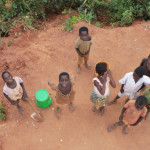Dehonians in the South of Italy have been open to welcoming migrants for several years. Stories of welcome before and during the pandemic
Tunde the Baker
Tunde is a baker in Turin. For more than three years he has been in our reception center for foreign citizens seeking 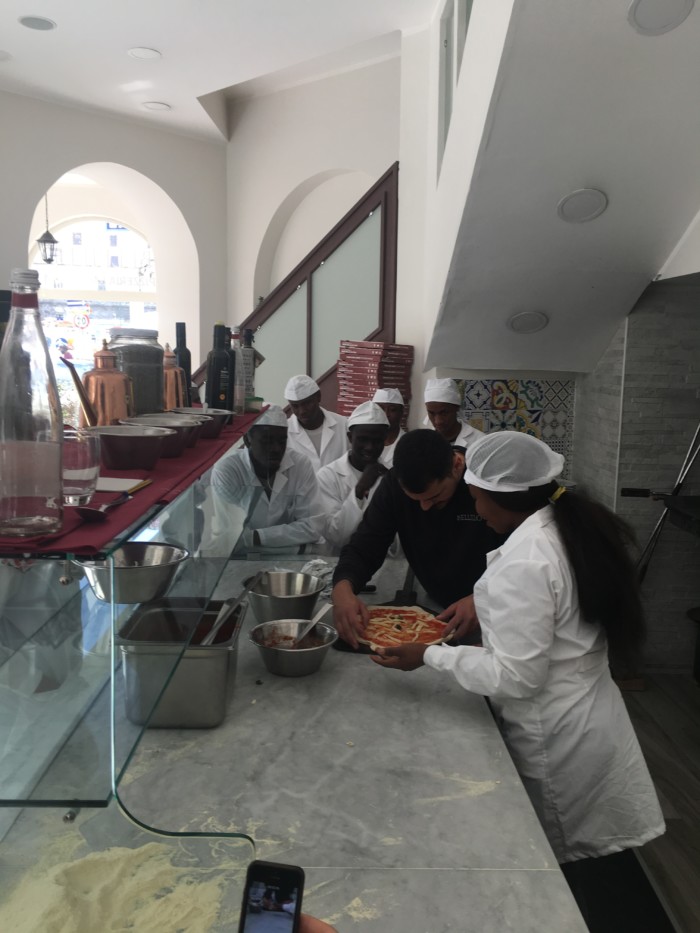 international protection. He would have liked to be a professional football player – and he was good at it – but the responsibility of being a family man pushed him to learn immediately an underused job, in order to find a job as soon as possible. In our center he cooked for everyone; he was accurate and respectful of the rules of hygiene that he had learned during a course in which we had enrolled him. We proposed him as an assistant cook in a restaurant in Sorrento but he soon made himself known for his great willingness to learn and moved on to the bakery of the same company. Yes, because to be a baker you have to work at night and not everyone is willing to make such a sacrifice. Now, in Turin, he is the laboratory manager of a bakery. Antonio, his son, was born in October 2014, a few days after the start of our hosting activities. He bears the name of one of the workers of the center to whom the guests were particularly fond of. He was baptized in the chapel of the “P. Dehon” Apostolate Center, in Via Marechiaro in Naples; the same center that the Dehoniana Congregation has made available for the reception of migrants, managed by the Third World Lay Group.
international protection. He would have liked to be a professional football player – and he was good at it – but the responsibility of being a family man pushed him to learn immediately an underused job, in order to find a job as soon as possible. In our center he cooked for everyone; he was accurate and respectful of the rules of hygiene that he had learned during a course in which we had enrolled him. We proposed him as an assistant cook in a restaurant in Sorrento but he soon made himself known for his great willingness to learn and moved on to the bakery of the same company. Yes, because to be a baker you have to work at night and not everyone is willing to make such a sacrifice. Now, in Turin, he is the laboratory manager of a bakery. Antonio, his son, was born in October 2014, a few days after the start of our hosting activities. He bears the name of one of the workers of the center to whom the guests were particularly fond of. He was baptized in the chapel of the “P. Dehon” Apostolate Center, in Via Marechiaro in Naples; the same center that the Dehoniana Congregation has made available for the reception of migrants, managed by the Third World Lay Group.
Open convents
At that time, Pope Francis recommended that all religious open their homes to help “welcome” those multitudes who 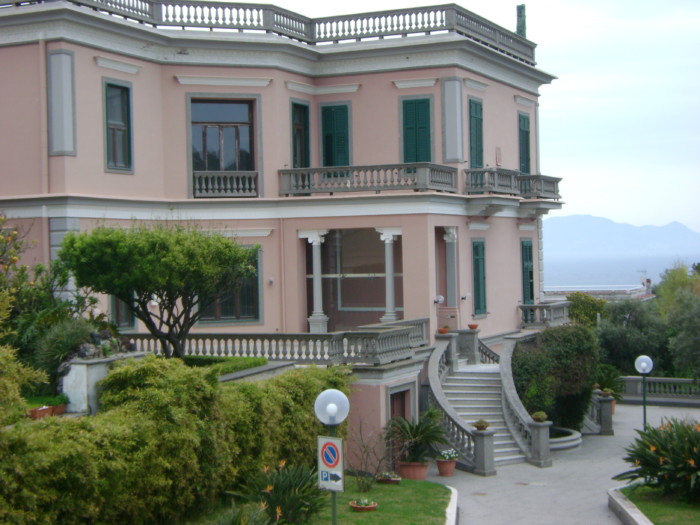 populated “the African exodus.” They landed by the hundreds of thousands and there was never enough room to house them. Between 2015 and 2018, there was a number of arrivals ranging from 170,000 to nearly 200,000 each year.
populated “the African exodus.” They landed by the hundreds of thousands and there was never enough room to house them. Between 2015 and 2018, there was a number of arrivals ranging from 170,000 to nearly 200,000 each year.
It was a good experience. It gave us the opportunity to practice charity, but it also enriched us and made us better. It gave us the opportunity to meet so many people who, unlike the stereotypical image of foreigners, made us share in the extreme poverty from which they were fleeing, in the atrocities they suffered along the way to Italy, in the many injustices that took place before our eyes due to petty and unjustified prejudices.
The story of Tereza and Ibrahim
Tereza went to Germany and makes home deliveries for a multinational company: she is a “rider”. She earns little and works a lot, but she is happy because she can lead an honest and dignified life, far from the hardships that caused the loss of her child in Africa. When she left, she left a note of greeting and thanks to the operators of the welcome center. It is still attached to the bulletin board. No one has the courage to remove it. It would bring a tear to the eye of even the most curmudgeonly of men.
Ibrahim comes from Sierra Leone and was responsible for cleaning the common areas of the reception center. A handkerchief left on the floor was enough to send him into a rage, he would grab his broom and dustpan and dispense lecture to the first person who came within reach. He has cataracts in both eyes, which rapidly degenerated in 2020, despite his young age. He is a guest in another shelter but continues to come to us for medical assistance. And we, faithful to our mission, will help him until he solves the problem with a surgical operation.
Our work continues
As of 2019, for various reasons referable to international agreements and the closing of the frontiers, the landings on 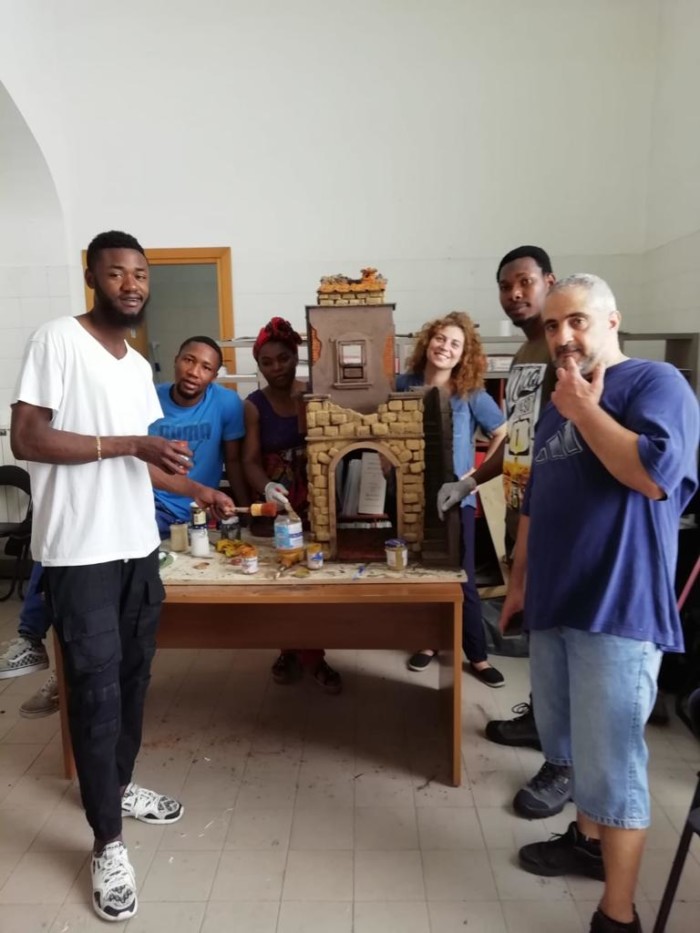 the Italian coasts have drastically decreased and therefore there is no longer a need for many reception centers. Arrivals are well below 10,000 per year and government facilities can easily absorb them in decent conditions.
the Italian coasts have drastically decreased and therefore there is no longer a need for many reception centers. Arrivals are well below 10,000 per year and government facilities can easily absorb them in decent conditions.
For this reason, at the end of 2020, after six years of welcoming service, we have decided to put an end to this commitment, perceived as a humanitarian obligation and moral responsibility towards so many young people and children who have been entrusted to us and whom we have initiated towards a dignified future.
But our work continues. Our missionaries, together with many volunteers, remain committed among the “last” of those poor countries that are still victims of existential imbalances, due to the poor distribution of wealth and the difficulty of access to primary services, such as food and health. These are inequalities for which Pope Francis continues to appeal to the “great” of the earth, international organizations and people of good will.
Inequality as a social disease
The Holy Father, in an August 2020 general audience was very harsh: “…the symptoms of inequality reveal a social disease; it is a virus that comes from a sick economy. It is the fruit of unequal economic growth, which disregards fundamental human values. In today’s world, the very rich few own more than the rest of humanity. It is an injustice that cries out to heaven!”
The Holy Mass on the seventh anniversary of his 2013 visit to Lampedusa, the Holy Father dedicated it to migrants and quoted a verse from the Gospel to summarize his solicitations, “Whatever you did to one of the least of these brothers of mine, you did to me.”
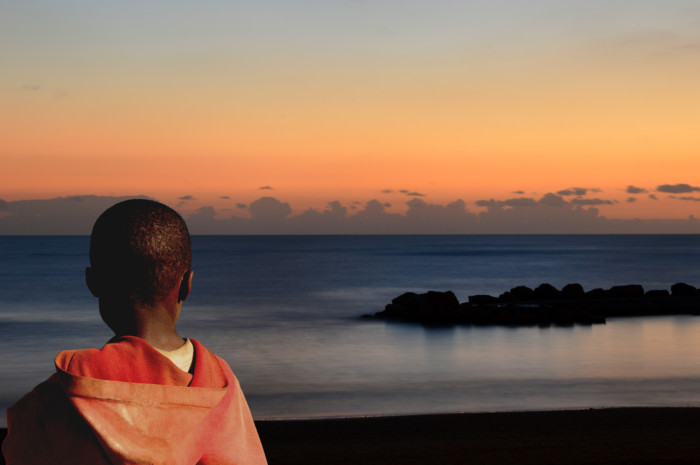
Europe is distant – An African child looks at the sea that separates it from Europe
Sources at the United Nations High Commissioner for Refugees (UNHCR) report that nearly 50,000 migrants are still trapped in Libya. Eighty percent of these are people who have fled the horrors of wars in Sudan, Syria and Eritrea. Amnesty International reports serious human rights violations and abuses of all kinds that are not hard to imagine. All this has been confirmed by the guests of the reception center of the Dehonian Fathers in Via Marechiaro in Naples, with shocking stories that have seen them witnesses and victims with wounds in body and soul; but fortunately, they have managed to overcome that great cemetery that has become the Mediterranean.
If we think about it, Libya may seem far away, beyond our reach, beyond the commitment of each of us for those “little brothers”. It would be too simplistic to absolve ourselves of responsibility for this. Those smaller brothers and sisters are also among us, in our cities, in our neighborhoods, along the path of our existence. We can look away, or pretend not to know, or justify our lack of interest because of our problems, but they are also among us.
Third World Lay Group
For years, Gruppo Laici Terzo Mondo has been committed to the integration of migrants in Campania. In the schools of Naples, it helps children with educational support, especially to overcome the language difficulties due to which they risk school failure.
Usually children, even newcomers, learn the language quickly by socializing with their peers, but this past year it has been more difficult. Their peers, in the best of circumstances, have met them only through distance learning: a screen that only partially shortens the social distance.
The pandemic has denied all opportunities to build friendships and play in spaces with the group of friends. Many children, especially among immigrants, have found themselves isolated and thus excluded from the possibility of participating in school activities due to the lack of electronic devices. By now, this too is poverty that causes inequality and exclusion. The Association, therefore, has mobilized to provide tablets to the neediest children, those who had disappeared from school because they could not connect during the pandemic. They, too, are our youngest siblings
Presenza Cristiana is a magazine of information and religious culture. It addresses the intelligence and the heart, without distinction. It is characterized by a deep respect for each person, responding to their needs and stimulating curiosity.
It belongs to the Southern Italian Province.


